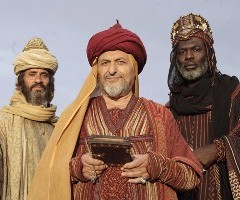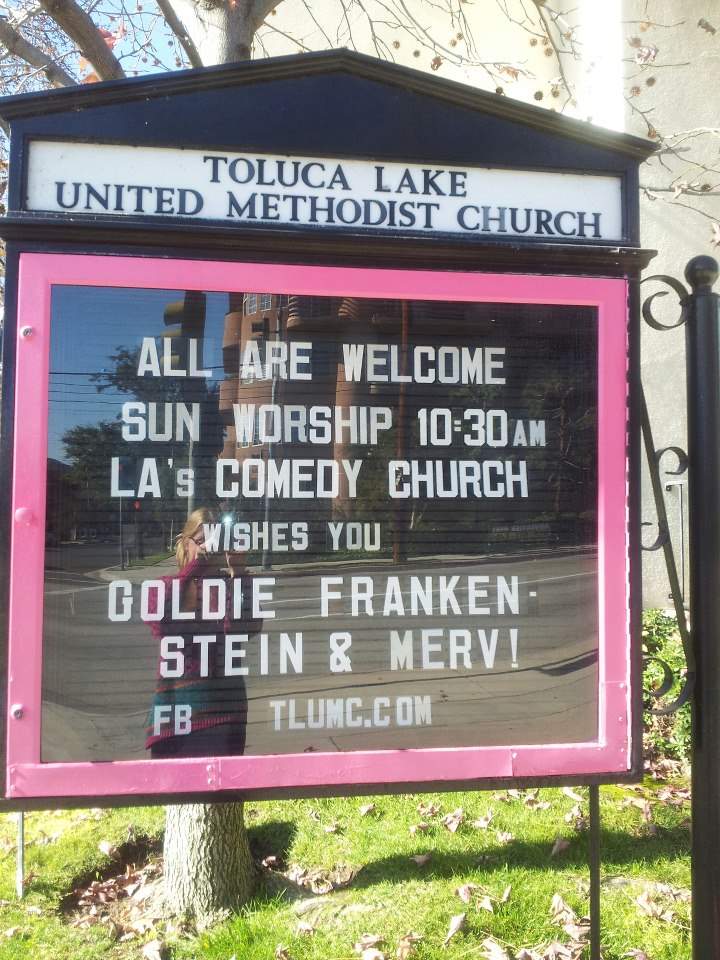Maybe you've heard of it: the "Tall Poppy Syndrome," referring to the tendency to cut down to size the one whose achievements and status towers above the rest. Make the playing field (or is it poppy field?) more equal.
It would seem there's a tendency to do this even in our beloved Christmas Story, chopping off at the jeweled neckline, as it were, the Wise Men, who are the "highest" characters in the traditional ensemble. The Magi are the wealthiest, smartest, and, literally, most elevated since they are presumed to ride camels from Persia to Judea following the Star in search of the Babe.
How are they leveled? With humor. By making them look not-so-wise, i.e., ironically, foolish. Albeit in a generally playful and loving way (like the shepherds in The Second Shepherd's Play).
In Jesus' nativity account, the Wise Men often provide comic relief. A favorite portrayal of them comes to us (of course) from Monty Python's Life of Brian which (of course) can't be viewed too many times....
If you've seen the recent very good (imho) film The Nativity Story, you'll note that the Wise Men provide a playful "though-line," with Melchior portrayed as an overly skeptical curmudgeon who doesn't want to take the trip West - he's essentially the Ed Mertz of the trio. Gaspar: "Tell me Melchior, how many days since we departed?" Melchior: "104." Gaspar: "And how many days have you spoken with regret for having taken the journey?" Melchior: "105. I'm counting tomorrow." (At the end of the film, btw, Melchoir movingly offers the myrrh that honors the sacrifice the Child will one day make. )
Then there are the Three King jokes, my favorite of which is: "What would have been different if there had been Three Wise Women?"
Even within the text itself there is a subtly comic lowering of the Wise Men. They enter the scene as characters presumably impressively knowledgeable (that's why they're called "wise men," yes?). Yet, from the get-go, all they do is throw things into a terrible tizzy with their naivete and misinformation. They show up at Herod's doorstop not quite accurately, having been led by the Star to the palace in Jerusalem rather than the stable in Bethlehem. Then they unwittingly spill the beans to Herod by asking the whereabouts of the newborn King. This sets Herod's paranoia into full throttle and into gear a horrible plot to murder as many babies necessary in order to kill the infant Jesus. When looked at through the Comic Lens, the Wise Men start seeming more like Keystone Cops than venerated sages.
Of course, there are other, less kooky ways of interpreting the story. For example, there's the lifting up of the Wise Men's dedication to obedience, following God's direction (accurate or otherwise) no matter what; their willingness to honor the Babe (once they found him) despite the decidedly non-royal setting where he was revealed; the significance of foreign dignitaries as the first visitors to the Christ child (in Matthew's gospel).
In any case, here's a wish from me and the Comedy Church (from Epiphany of last year, but the sentiment absolutely carries over...):
Spot the author and win a prize.






